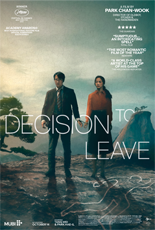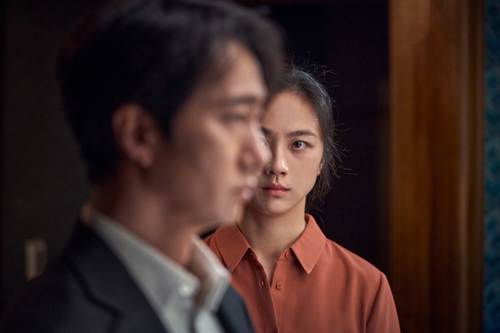
 When a 60-year-old man is found dead at the bottom of a mountain, police detective Hae-joon Jang (Park Hae-il, Memories of Murder) has reason to suspect the deceased’s much younger wife, Seo-rae (Tang Wei, Blackhat), may be to blame. As in so many cinematic crime stories, from film noir to erotic thrillers, the more our protagonist investigates, the more he falls in love with this enigmatic beauty. Thus, a dual mystery forms: Did she or didn’t she, and will they or won’t they?
When a 60-year-old man is found dead at the bottom of a mountain, police detective Hae-joon Jang (Park Hae-il, Memories of Murder) has reason to suspect the deceased’s much younger wife, Seo-rae (Tang Wei, Blackhat), may be to blame. As in so many cinematic crime stories, from film noir to erotic thrillers, the more our protagonist investigates, the more he falls in love with this enigmatic beauty. Thus, a dual mystery forms: Did she or didn’t she, and will they or won’t they?
Despite drawing influence from so many films before it, Decision to Leave is hardly derivative — not in the hands of a top-shelf craftsman like Park Chan-wook. The South Korean filmmaker unspools this one at a dizzying pace that makes it as twisty as Oldboy and as visually sumptuous as The Handmaiden, to name two of his best in a long, distinguished career.

Even with those previous pictures setting the bar high, Decision to Leave clears it with seemingly little effort, although we know that’s not the case. Park is in total control of his material, matching the caution and preciseness Hae-joon does in examining crime scenes for clues; even when Hae-joon’s heart causes him to slip, the director never does. If anything, he grasps the reins even tighter as he weaves the remaining threads of a rich Hitchcockian tapestry of passion, peril and tragedy. Getting tangled within that is all too easy, for the characters and their viewers.
Like your Vertigo, the movie is oddly, even achingly romantic — a mix that wouldn’t work if either lead weren’t atop their game. Both actors are excellent, but Tang is the real surprise in a plot brimming with more than its share of them. Marked by masterful composition and transitions throughout, Decision to Leave is a spellbinding knuckle-cracker. Your loss, xenophobes. —Rod Lott
